The Magic of “I Can” Worksheets
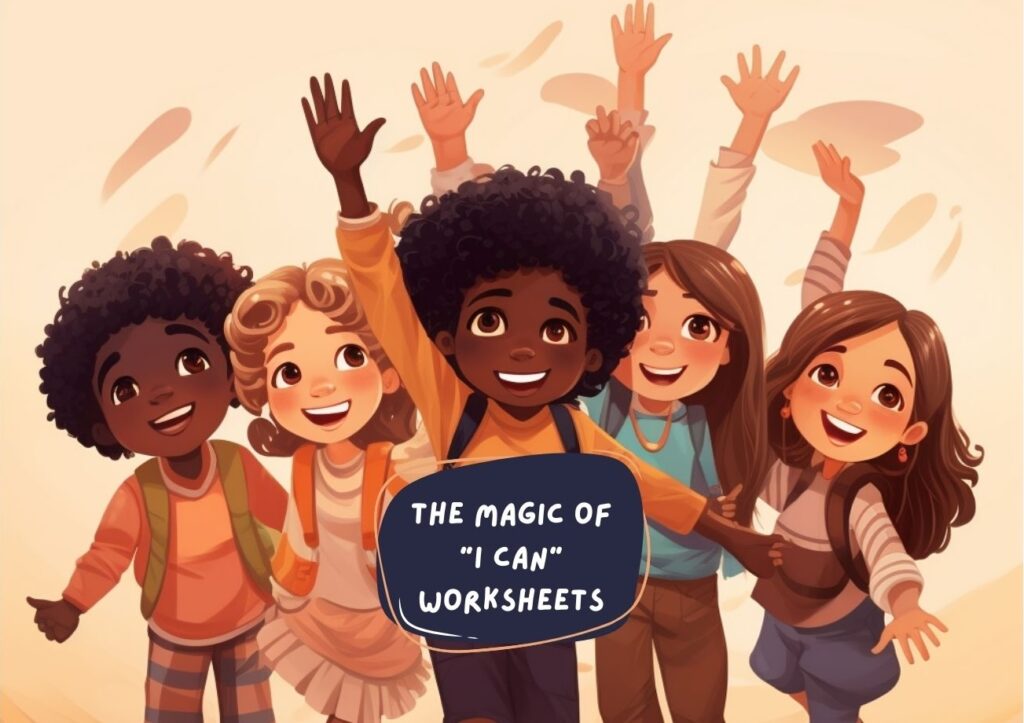
In the colorful world of childhood, fostering a sense of self-efficacy and accomplishment lays the foundation for a confident and resilient future. “I Can” worksheets are a delightful tool designed to unleash the power of positive affirmations and achievable tasks in kids aged 4 to 12. In this article, we embark on a journey through the why, how, and the fun of integrating “I Can” worksheets into the daily lives of our young learners.
Understanding “I Can” Worksheets
“I Can” worksheets are more than just pieces of paper; they are gateways to building a child’s confidence and belief in their abilities. These worksheets present age-appropriate tasks and activities crafted to instill a positive mindset and a sense of accomplishment in children.
The benefits of using “I Can” worksheets are as diverse as the children themselves. These worksheets are crucial in nurturing a child’s overall development, from fostering a sense of accomplishment to building self-esteem.
Age-Appropriate “I Can” Worksheets: Tailoring for Psychological Development
In the realm of child development, the significance of tailoring educational tools to different age groups has been extensively explored by renowned psychologists. Let’s delve into the age-specific customization of “I Can” worksheets, drawing insights from psychological research by experts in the field.
Free Printable “I Can” Worksheet PDF
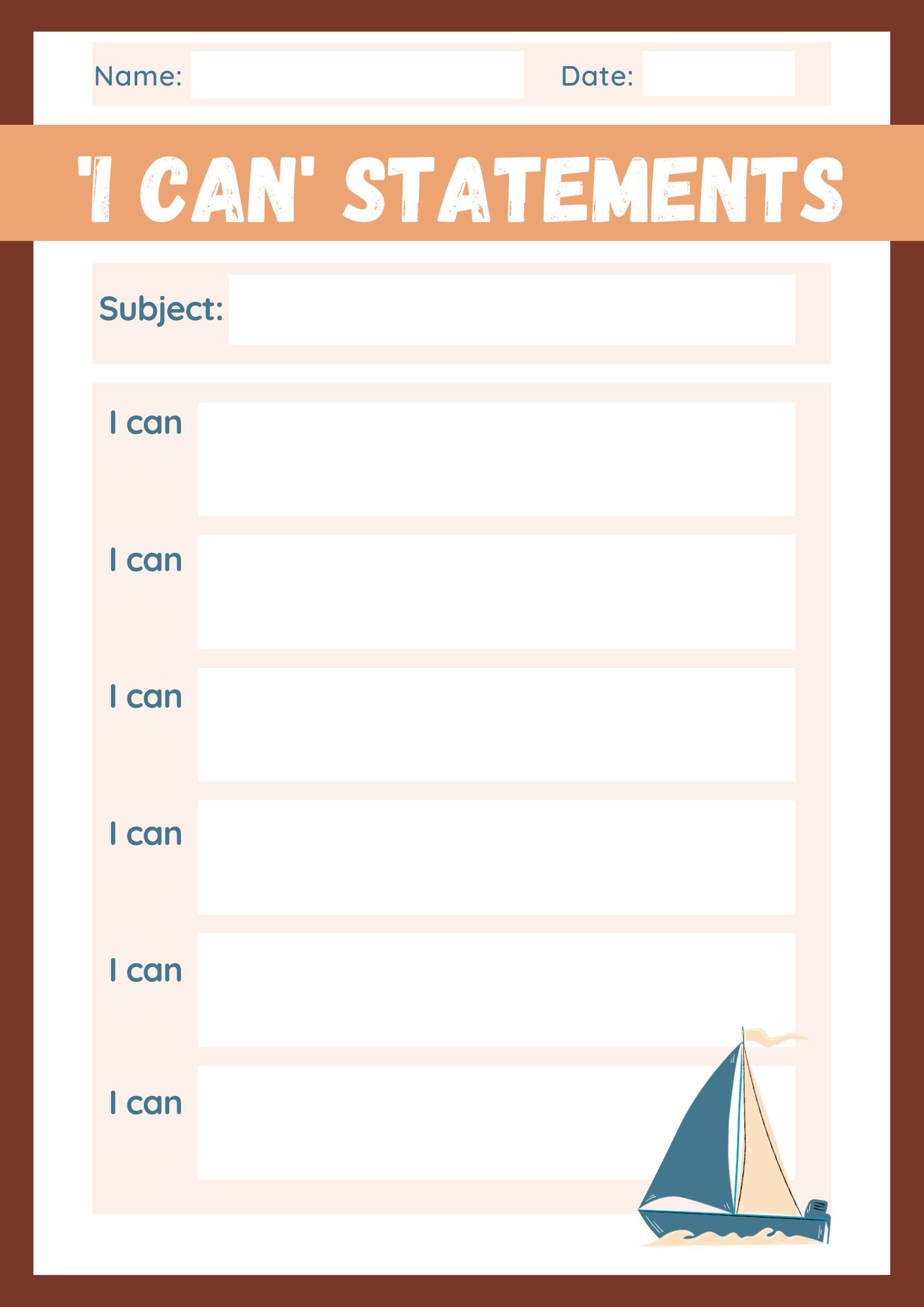
4-6 Years: The Foundation Years
Jean Piaget’s Cognitive Development Theory: During the ages of 4-6, children are in the preoperational stage of cognitive development. Piaget emphasizes the importance of concrete, hands-on experiences. “I Can” worksheets for this age group should focus on simple tasks that enhance fine motor skills, such as drawing lines or connecting dots. The activities should be visually stimulating, using vibrant colors to engage their developing senses. A star chart would perfectly fit the task.
Erik Erikson’s Psychosocial Development Theory: Erikson’s theory highlights the psychosocial task of autonomy versus shame and doubt during this stage. “I Can” worksheets can contribute to a sense of autonomy by encouraging children to complete tasks independently, fostering a positive self-image.
7-9 Years: The Concrete Operational Stage
Lev Vygotsky’s Sociocultural Theory: Vygotsky emphasizes the importance of social interaction and scaffolding during the ages of 7-9. “I Can” worksheets for this age group should incorporate collaborative elements, encouraging group activities or tasks that involve discussions. This fosters not only cognitive development but also enhances social skills.
Howard Gardner’s Multiple Intelligences Theory: Gardner’s theory suggests that children possess different types of bits of intelligence. “I Can” worksheets for 7-9-year-olds can cater to various intelligences, including linguistic, logical-mathematical, and spatial. Tailoring tasks to these different intelligences ensures a well-rounded learning experience.
10-12 Years: The Period of Abstract Thinking
Jean Piaget’s Formal Operational Stage: Piaget’s final stage emphasizes abstract thinking. “I Can” worksheets for 10-12-year-olds should involve tasks that require logical reasoning, problem-solving, and critical thinking. Complex puzzles, challenges, and activities that encourage planning and organization align with their cognitive capabilities.
Erik Erikson’s Identity vs. Role Confusion: Erikson’s theory introduces the psychosocial task of identity formation during adolescence. “I Can” worksheets for this age group can include activities that promote self-reflection, goal-setting, and personal growth, contributing to a positive sense of identity.
By aligning “I Can” worksheets with these psychological theories, we ensure that the tasks are not only age-appropriate but also intricately woven into the fabric of a child’s cognitive and psychosocial development. This thoughtful customization not only enhances engagement but also nurtures a love for learning at each stage of a child’s journey.
Integrating “I Can” Worksheets into Daily Routine
- Blending with Existing Activities. Make learning seamless by combining “I Can” worksheets with existing activities. Discover how these worksheets can effortlessly become part of playtime, bedtime routines, or family activities.
- Establishing a Routine. Consistency is key. Learn how to establish a routine that seamlessly incorporates “I Can” worksheets into daily life, making them a natural and anticipated part of a child’s day.
- Encouraging Independence. Watch your child bloom as they take charge of their learning journey. Discover strategies to encourage independent completion of tasks, fostering a sense of responsibility and self-reliance.
Adapting “I Can” Worksheets for Different Subjects
- Language and Literacy
Explore how “I Can” worksheets can enhance language and literacy skills through fun and interactive activities.
- Math and Problem-Solving
Turn math into an adventure! Uncover ways to make numbers and problem-solving exciting through tailored worksheets.
- Social and Emotional Development
Delve into the emotional realm as we discuss how “I Can” worksheets can nurture social skills and emotional intelligence, creating well-rounded and empathetic individuals.
Closing Thoughts
In empowering children through positive affirmations and achievable tasks, we pave the way for a future where they not only say “I can” but genuinely believe in the boundless possibilities.
More articles
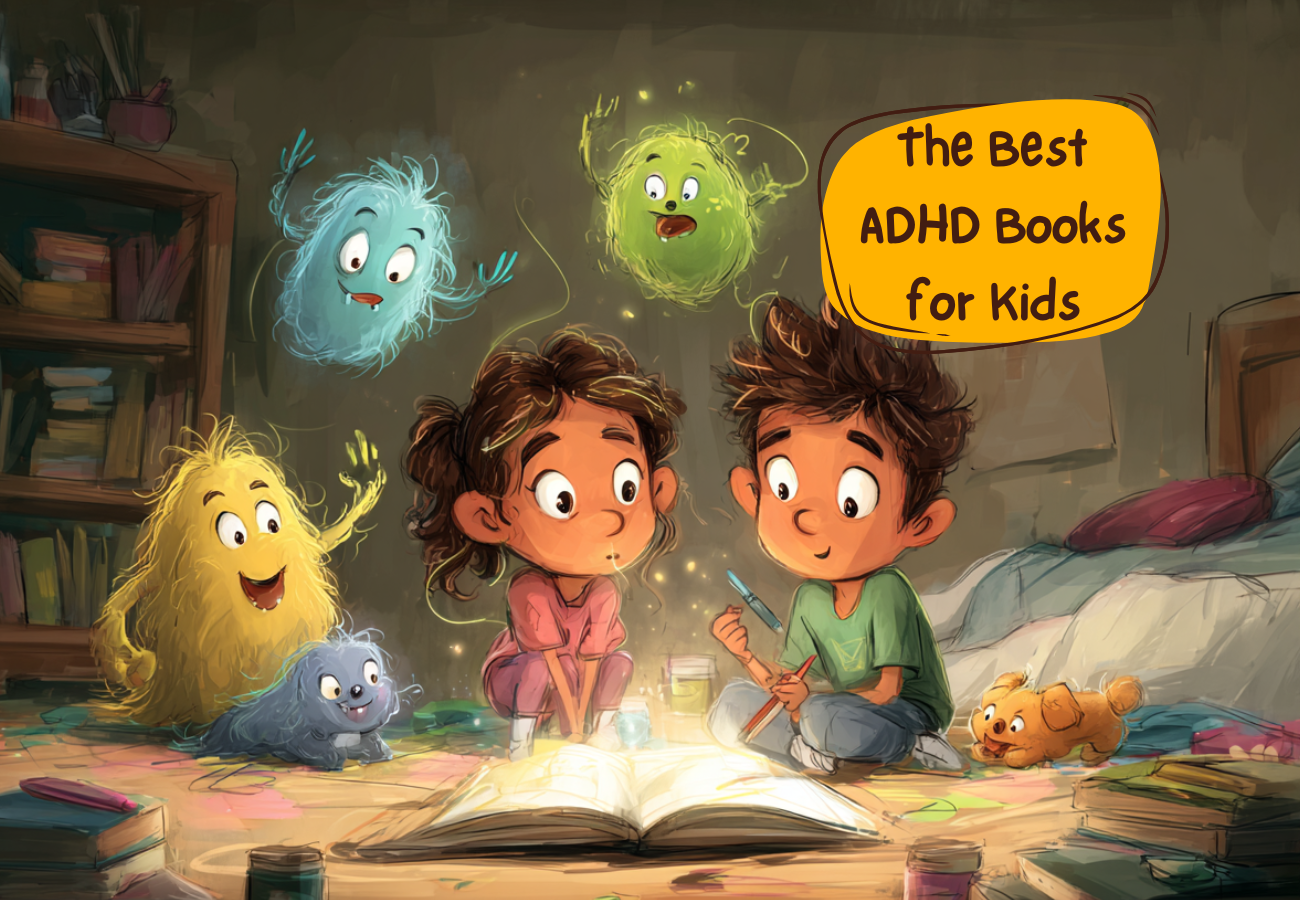
The Best ADHD Books for Kids: Supportive Reads for Children and Parents
Supporting a child with Attention-Deficit/Hyperactivity Disorder (ADHD) starts with understanding their world—how they think, feel, and navigate daily challenges. One of the most effective tools for building empathy, resilience, and confidence is reading. The right ADHD books for kids help children feel seen, understood, and empowered. At the same time, high-quality books for parents of […]
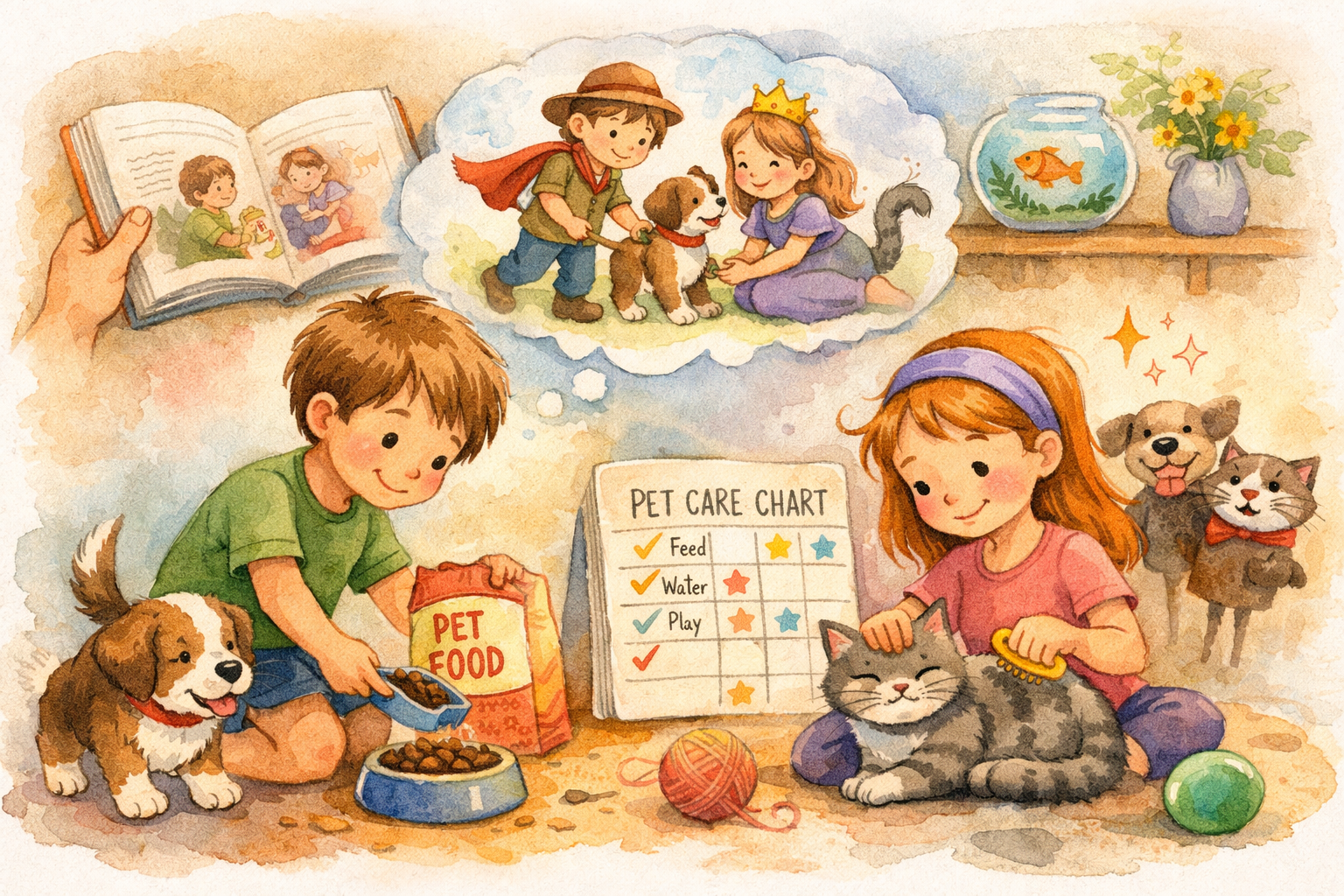
Kid-Friendly Ways to Learn Responsibility Through Storytelling and Pets
Teaching responsibility to children can sometimes feel like herding cats – adorable, unpredictable, and a little exhausting. One day they’re eager to help, the next they’ve completely forgotten what they promised to do. The good news? Responsibility doesn’t have to be forced or boring. When you mix the power of storytelling with the real-life experience […]
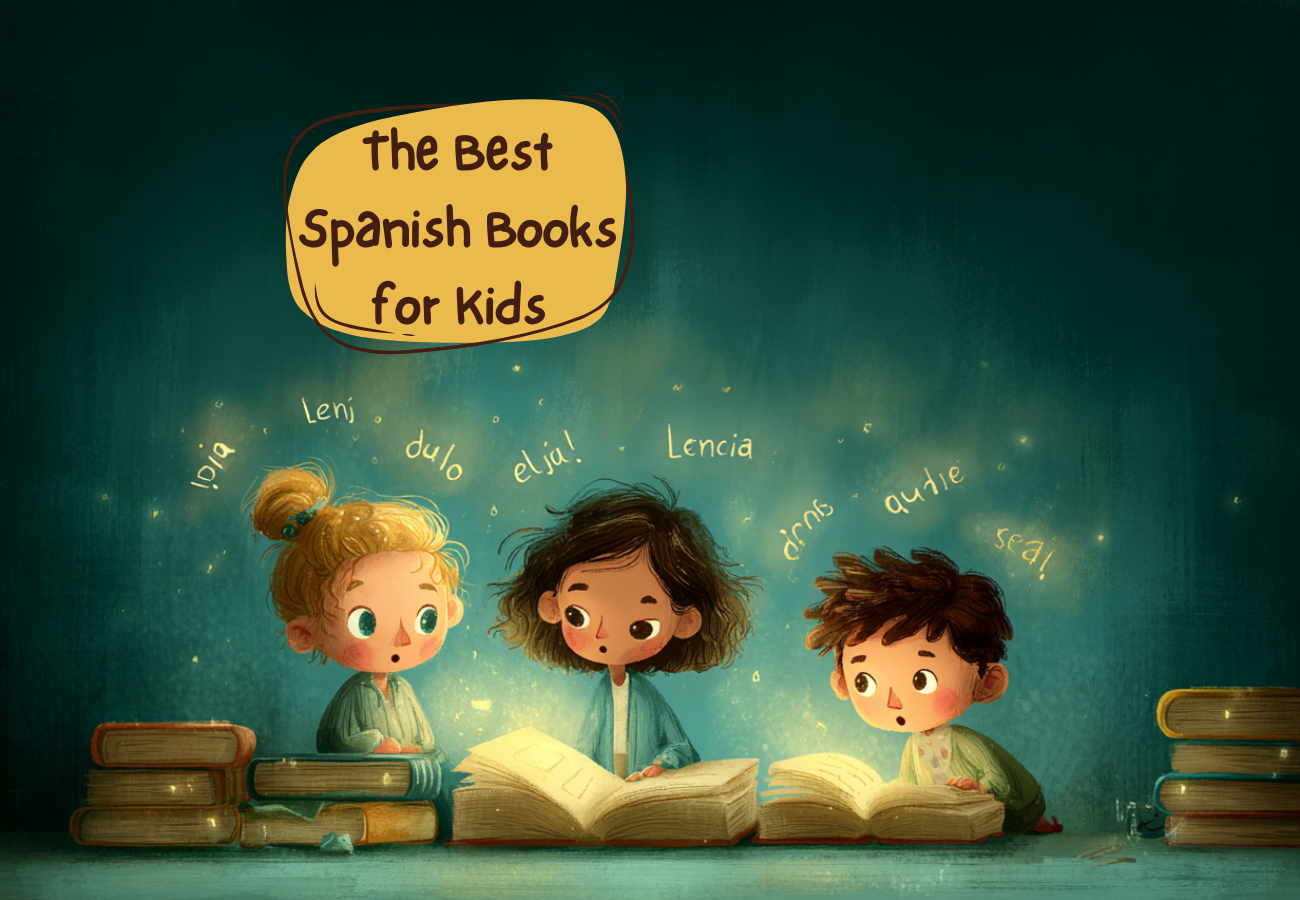
The Best Spanish Books for Kids: Fun and Engaging Books
Introducing children to a second language early opens the door to stronger communication skills, cultural understanding, and long-term academic benefits. Whether you’re a teacher, parent, or bilingual family, choosing the right Spanish books for kids is one of the most effective and enjoyable ways to support language learning. High-quality books in Spanish for kids build […]



